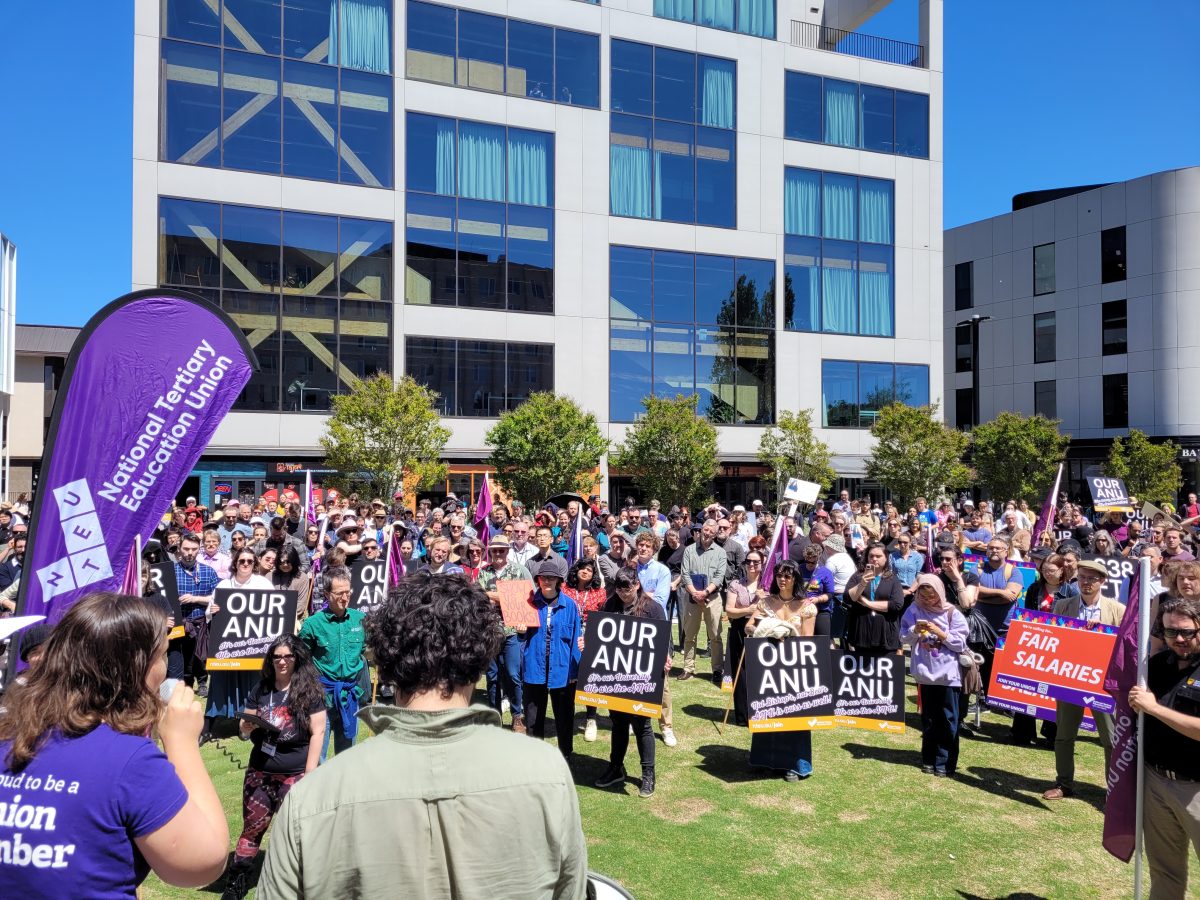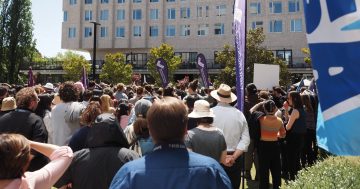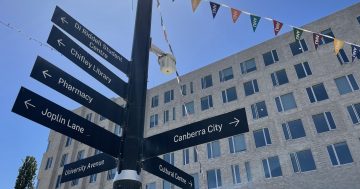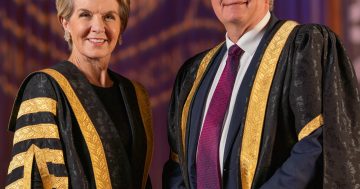
ANU staff rally on campus against the proposed pay sacrifice. Photo: NTEU.
ANU staff have been asked to forgo the upcoming 2.5 per cent December pay increase under the ANU Enterprise Agreement as part of cost-saving measures at the financially troubled university where hundreds of jobs are on the line.
But the move, which can only go ahead through a majority vote of staff, faces stiff opposition from the National Tertiary Education Union.
Vice-Chancellor Genevieve Bell, who is on an annual package of $1.1 million, proposed the pay sacrifice in an email to staff, along with herself taking a 10 per cent salary cut.
Senior executives on Performance Based Employment Contracts have also been asked to forgo their 2.5 per cent salary increase due in December, which would save around $1.2 million.
“I know that asking you to forego a salary increase you were expecting to receive is a significant decision, particular (sic) in the current broader economic context,” Professor Bell told staff.
“But I encourage you to think about what this sacrifice could mean for our community.”
The ANU hopes to save $100 million overall in salaries.
Professor Bell said that if both staff and senior executives forgo their December 2024 increases the ANU could reduce the salary savings it needed to find in 2025 by as much as $15 million.
“This will save jobs,” she said.
But the NTEU says a pay cut didn’t save jobs last time under the 2020 ANU Recovery Plan and won’t save jobs this time.
“This a pay rise that staff went on strike for to win, and which ANU agreed to pay staff not even 12 months ago. After a year of negotiating, now we’re being asked to give pay away in return for nothing,” it said in a letter to staff ahead of Wednesday’s rally, where staff voted overwhelmingly to reject the pay proposal.
“This appears to be another arbitrary decision from the Chancelry tower – the union has not been consulted about the possibility of this and has previously been given assurances it would not happen.”

ANU Vice-Chancellor Professor Genevieve Bell says she will take a 10 per cent pay cut. Photo: Andrew Mears/ANU.
ACT secretary Dr Lachlan Clohesy said staff were already reeling from the Vice-Chancellor’s recent decision to triple the cost of parking, which would eat up their next pay increase.
“We are in a cost of living crisis. This will only set ANU staff further backwards,” he said.
The union has estimated that more than 600 jobs could go in the latest cuts but Dr Clohesy said the ANU should start at the top.
“The Vice-Chancellor has announced she’s taking a pay cut – but if you’re still on $1 million a year after taking a pay cut, there’s a clear problem with executive salaries,” he said.
“Fourteen people at the ANU earned over $500,000 in remuneration last year.”
Dr Clohesy accused the ANU of focusing on property development rather than investing in its core mission.
“The ANU spent $16.75 million for land to build a health precinct. This year, they’re disestablishing the College of Health and Medicine. ANU needs to invest in teaching, research and student support, not property,” he said.
Dr Clohesy said there had been little accountability and transparency in the two-week consultation with staff and said Chancellor Julie Bishop and Professor Bell should take responsibility for the current situation.
“It is clear these problems span the tenure of both Brian Schmidt and Genevieve Bell. Julie Bishop, as Chancellor and Chair of ANU Council, has primary responsibility for oversight of the university. She has one job in relation to the ANU, and has clearly failed. In any other context, senior leaders would be sacked,” he said.
“There is a significant difference between a financial crisis brought on by a global pandemic, and a financial crisis brought about by a complete failure of governance and financial mismanagement of the university by the senior executive. Staff should not pay for the bad decisions of management.”

















